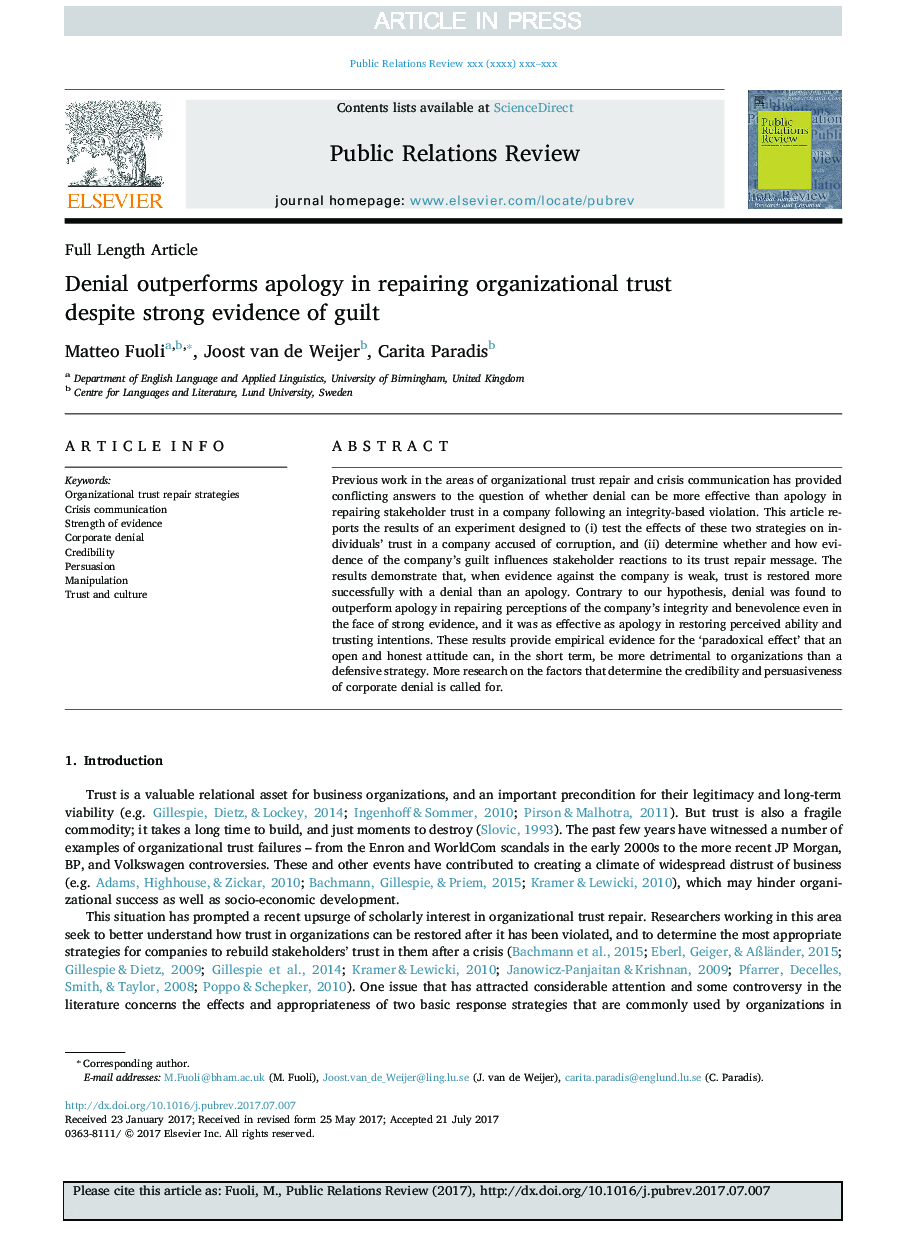| Article ID | Journal | Published Year | Pages | File Type |
|---|---|---|---|---|
| 4761728 | Public Relations Review | 2017 | 16 Pages |
Abstract
Previous work in the areas of organizational trust repair and crisis communication has provided conflicting answers to the question of whether denial can be more effective than apology in repairing stakeholder trust in a company following an integrity-based violation. This article reports the results of an experiment designed to (i) test the effects of these two strategies on individuals' trust in a company accused of corruption, and (ii) determine whether and how evidence of the company's guilt influences stakeholder reactions to its trust repair message. The results demonstrate that, when evidence against the company is weak, trust is restored more successfully with a denial than an apology. Contrary to our hypothesis, denial was found to outperform apology in repairing perceptions of the company's integrity and benevolence even in the face of strong evidence, and it was as effective as apology in restoring perceived ability and trusting intentions. These results provide empirical evidence for the 'paradoxical effect' that an open and honest attitude can, in the short term, be more detrimental to organizations than a defensive strategy. More research on the factors that determine the credibility and persuasiveness of corporate denial is called for.
Related Topics
Social Sciences and Humanities
Business, Management and Accounting
Marketing
Authors
Matteo Fuoli, Joost van de Weijer, Carita Paradis,
